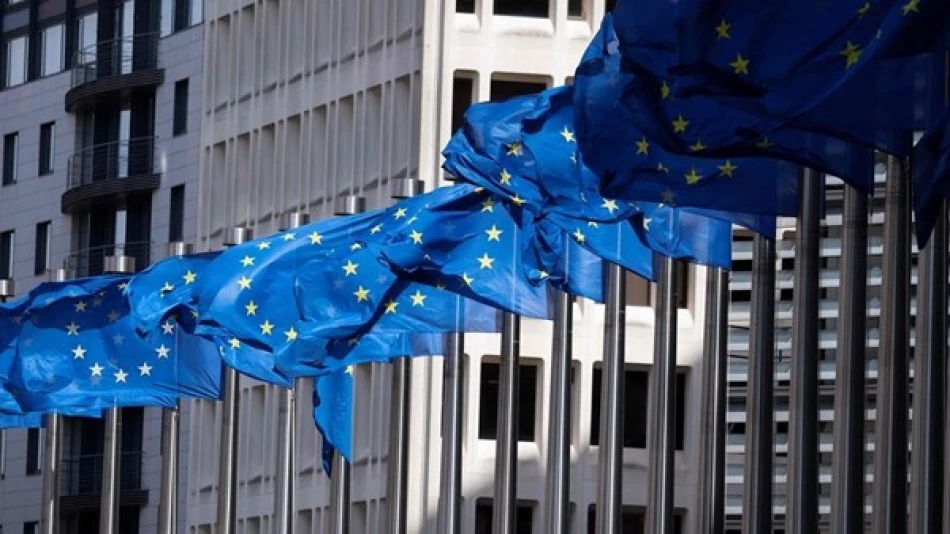
European Powers and Iran to Hold Crucial Nuclear Talks
Europe's Nuclear Diplomacy Push: Germany, France, and Britain Seek Direct Path to Iran Deal
Germany, France, and Britain will hold nuclear talks with Iran in Istanbul next Friday, marking a renewed European effort to forge a diplomatic breakthrough on Tehran's nuclear program outside the traditional multilateral framework. The meeting represents the first direct engagement between the European trio and Iran since their June discussions in Geneva, signaling growing European urgency to prevent further nuclear escalation in the Middle East.
The European Trio Takes the Lead
A German diplomatic source confirmed that Berlin, Paris, and London are "working intensively within the E3 framework to find a sustainable and verifiable diplomatic solution to Iran's nuclear program." This approach highlights Europe's determination to maintain diplomatic channels even as broader international negotiations remain stalled.
Iran's Foreign Ministry spokesperson Ismail Baghaei announced that Tehran agreed to the new round of talks "in response to the European countries' request," according to state television. The willingness of both sides to engage suggests mutual recognition that the current trajectory—Iran's continued uranium enrichment and Europe's escalating sanctions—serves neither party's long-term interests.
Strategic Significance of the Istanbul Venue
The choice of Istanbul as the meeting location carries diplomatic weight. Turkey has historically served as a neutral ground for sensitive Middle Eastern negotiations, offering both sides political cover while maintaining distance from more polarized venues. This mirrors Turkey's role in facilitating various regional diplomatic initiatives, from Syria talks to prisoner exchanges.
Bypassing Traditional Multilateral Channels
The E3's direct engagement with Iran represents a notable shift from the traditional P5+1 format that included Russia and China. This streamlined approach may offer greater flexibility and faster decision-making, particularly as geopolitical tensions with Russia over Ukraine complicate broader multilateral diplomacy.
Context: A Diplomatic Landscape in Flux
The upcoming talks occur against a backdrop of significant regional and international developments. Iran's nuclear program has advanced considerably since the 2018 U.S. withdrawal from the Joint Comprehensive Plan of Action (JCPOA), with Tehran now enriching uranium to 60% purity—well beyond the 3.67% limit specified in the original agreement.
Meanwhile, the United States and Iran have conducted five rounds of nuclear negotiations mediated by Oman, indicating multiple diplomatic tracks running in parallel. This multi-channel approach reflects both the complexity of the nuclear issue and the various stakeholders' desire to maintain dialogue despite broader regional tensions.
Market and Strategic Implications
For energy markets, any progress in nuclear talks could signal potential sanctions relief, affecting oil prices and regional energy dynamics. European companies, particularly in Germany and France, maintain significant economic interests in Iran that have been curtailed by sanctions regimes.
Regional Security Calculations
The timing of these talks coincides with heightened regional tensions, including ongoing conflicts involving Iran's regional proxies and concerns about nuclear proliferation in the Middle East. European leaders likely view direct engagement as essential to preventing further escalation that could draw in NATO allies or disrupt global energy supplies.
Prospects for Breakthrough
The E3's decision to pursue direct talks suggests European assessment that incremental progress may be more achievable through focused bilateral engagement rather than waiting for broader international consensus. This pragmatic approach acknowledges that perfect multilateral solutions may be less attainable in the current geopolitical climate.
However, any agreement reached will ultimately require broader international support and coordination with U.S. sanctions policy to be truly effective. The European initiative may serve as a foundation for eventual wider negotiations, but success will depend on Iran's willingness to accept verifiable constraints on its nuclear activities in exchange for meaningful economic relief.
Most Viewed News

 Layla Al Mansoori
Layla Al Mansoori






